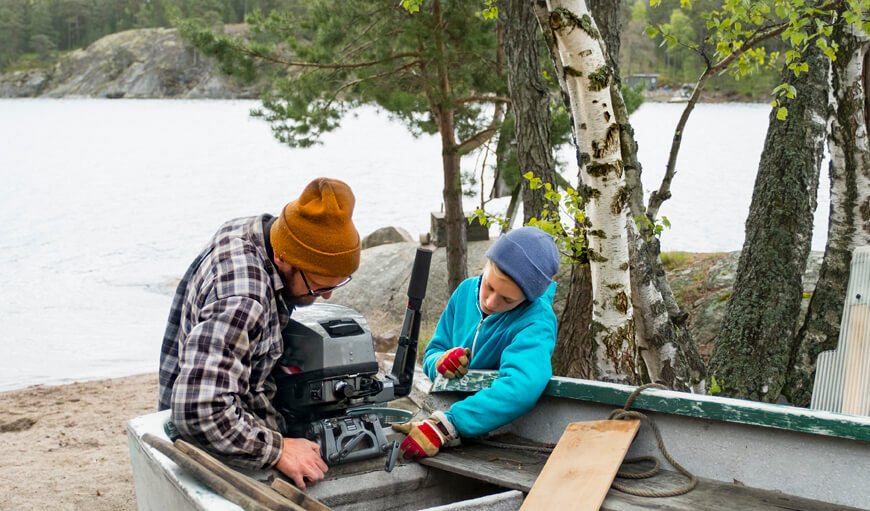
In some provinces in Canada we have the opportunity to boat year round. Boats connect us to nature, but recreational boating isn’t always an environmentally friendly activity. Our marine ecosystem is precious and very delicate, but even small changes in how we approach boating can make a huge difference. Here are some ways that you can help:
Limit fuel spills
The small fuel spills that come from recreational boating may seem insignificant, but collectively they have a horrifying impact – the U.S. Environmental Protection Agency (EPA) likens the effect on the environment to “death by 1000 cuts”. Taking steps to learn how to fuel a boat correctly and to limit any extra fuel from ending up in the water can go a long way to keep aquatic ecosystems healthy. You can take small actions such as filling your portable fuel tank on shore to avoid spilling any in the water, or use absorbent rags to mop up any extra fuel. Refrain from topping up your tank - fuel expands in the heat so leaving your tank 10% empty will prevent extra fuel from escaping, and don’t forget to close the vent on stored gas tanks. When managing your bilge, you can use an absorbent pad to prevent oil from being accidentally pumped overboard. And finally, experts estimate that a two-stroke engine can leave almost 30% of its fuel and oil in the water. Until you are able to move to a four-stroke engine, taking the time to properly maintain your current engine can help minimize this issue.
Maintaining your boat
Boat maintenance goes a long way to keeping waters clean and their inhabitants safe. Making sure that the bottom of your boat and other areas such as trailers and anchors are free of mud and dust before launching ensures that no unwelcome species are introduced to the water. Use non-toxic cleansers, or even vinegar and baking soda, and rinse with fresh water when possible. If a light cleaning is needed below, use a sponge to avoid scrubbing, which loosens noxious paint off of the bottom of the boat and into the water. And consider whether or not you really need anti-fouling paint, which can be toxic – you may be able to use hard paint with a wax coat instead. Place an oil absorbent pad in your bilge and under your engine where drips may occur.
Managing your onboard waste
Spending time on your boat means that there will be waste to dispose of at the end of the trip, no matter how short the excursion is. On this matter, the law is clear: it is illegal to dump untreated sewage anywhere within the Canadian or US three-mile territorial limit. In other protected waters, this limit is extended. Pumping out raw sewage is not an option, so ensuring that you have either a proper, installed toilet on your boat, or at least a portable “port-a-potty” is key, as is making good use of marinas and pump stations. These stations may also help you dispose of used bilge-pump pads, old fluids, oil, filters, batteries, and anything else that you can’t throw away when you are on the water.
Clean waterways for the future
What steps are you taking to minimize your impact on the environment when you are out on a boat? There are many choices that you can make. Recreational boating respectfully and responsibly can help keep our waters clean and healthy for future generations.